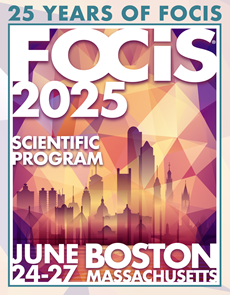Immuno-engineering and Cellular Therapies
Session: Immunoengineering and Therapeutics
Engineering of Regulatory T Cells with Hepatocyte-specific Chimeric Antigen Receptor Enhances Liver Tissue Trafficking
Thursday, June 26, 2025
5:10pm - 5:25pm East Coast USA Time
Location: Salons F-G
Ada S. Kurt– King's College London; Elisavet Kodela – King's College London; Emmanuelle Landmann – King's College London; Paula Ruiz – King's College London; Marwa Elgosbi – King's College London; Maegen Fleming – King's College London; Louisa Tang – Quell Therapeutics; Anna Koi – Quell Therapeutics; Eva Bugallo Blanco – Quell Therapeutics; Sim Tung – Quell Therapeutics; Daniela Penston – Quell Therapeutics; Marc Martinez-Llordella – Quell Therapeutics; Alberto Sanchez-Fueyo – King's College London
- MM
Marc Martinez-Llordella, PhD
VP Biology & Founder
Quell Therapeutics
London, England, United Kingdom
Presenting Author(s)
Abstract Text: Regulatory T cells (Tregs), known for their powerful immunomodulatory properties, are being evaluated as a therapeutic strategy to ameliorate immunopathology and re-establish immunological tolerance in autoimmunity and transplantation. Tregs require T-cell receptor (TCR)-mediated cognate antigen engagement for activation and pre-clinical studies demonstrated that antigen-specific Tregs preferentially migrate to inflammation sites, enabling targeted immunosuppression. Antigen specificity of Tregs can be modified using synthetic chimeric antigen receptor (CAR) technology. We hypothesized that engineering Tregs to express a CAR targeting a hepatocyte-specific antigen would enhance their selective migration to the liver. To test this, we designed and synthesized multiple second-generation CAR constructs incorporating single-chain antibody fragments specific for asialoglycoprotein receptor 1 (ASGPR) and varying transmembrane and hinge domains. Initial screening for specificity and functionality was performed using a Jurkat NFAT-reporter cell line stimulated with recombinant proteins and/or ASGPR-expressing cells. Human CD4+CD25+CD127– Tregs were then transduced, using lentiviral vectors, and their specificity and functionality was assessed through activation, proliferation, and suppression in vitro assays. The tissue homing and persistence of liver-specific CAR-Tregs were evaluated in vivo in immunocompromised NSG mice under homeostatic conditions. CARs were selected based on their specificity for ASGPR and activation profile following antigen recognition. As compared to untransduced polyclonal Tregs, ASGPR-specific CAR-Tregs exhibited enhanced activation, proliferation and suppressive function in vitro. Following infusion into NSG mice, CAR-Tregs preferentially homed and persisted in the liver. These findings demonstrate that organ-specific CAR engineering enhances Treg recruitment to target tissues, offering a promising strategy for improving outcomes in transplantation and inflammatory liver diseases.

